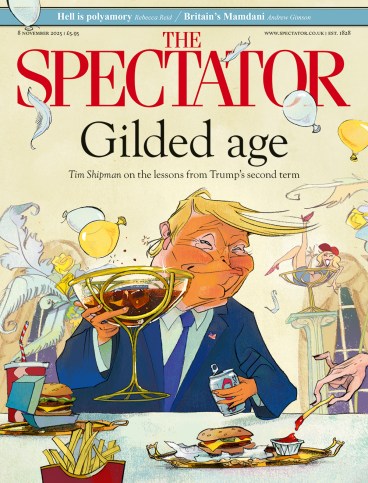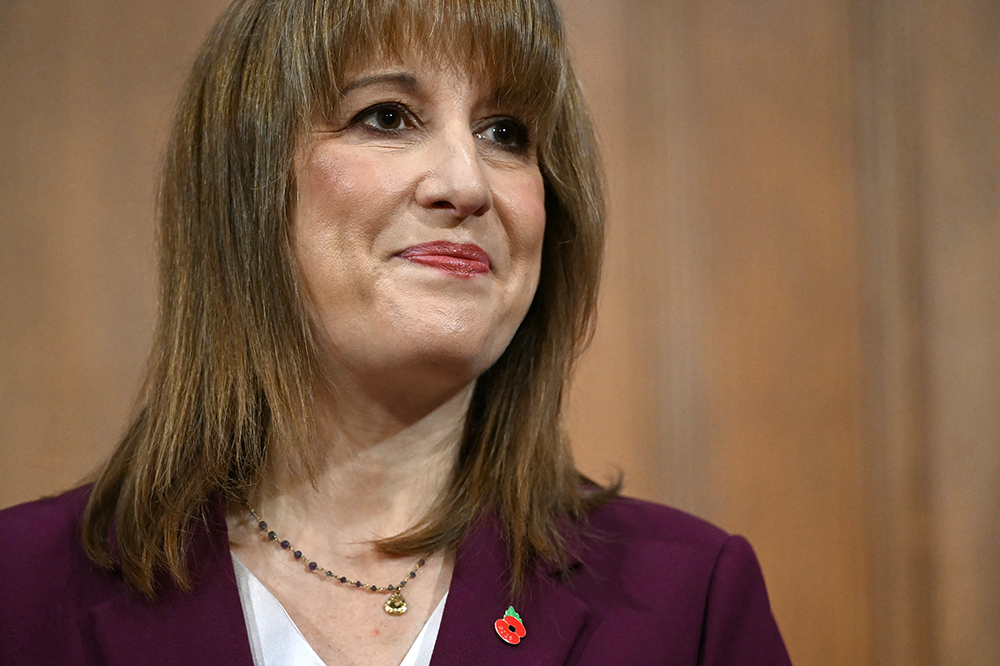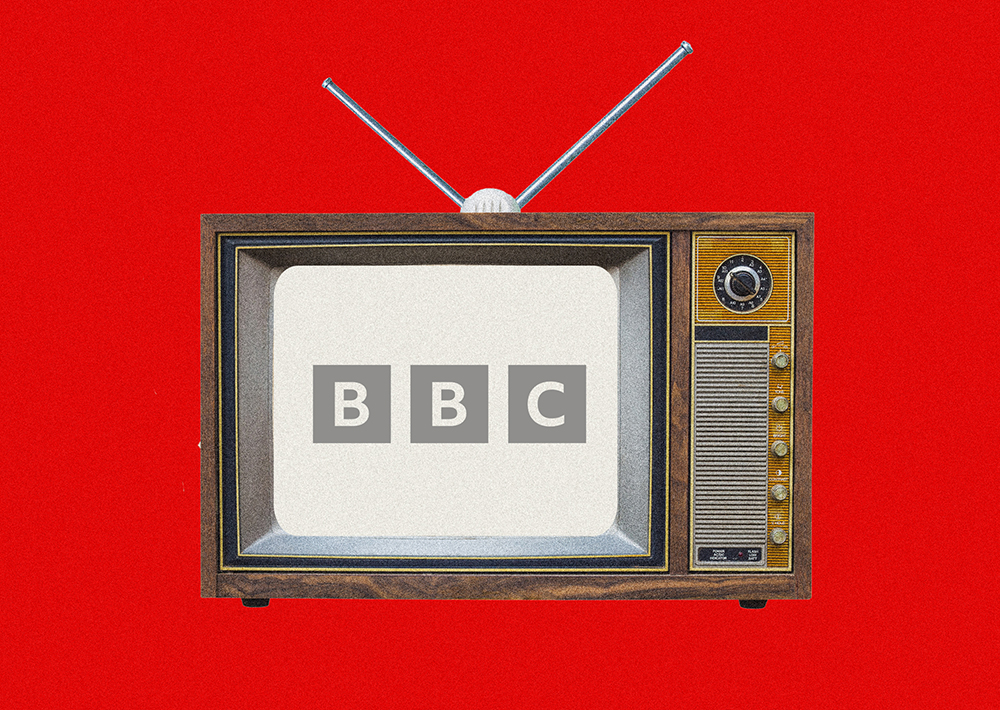
Call me hard-hearted, but I doubt even a magic mushroom-induced tantric visualisation of a harmonious universe could transport me into a state of sympathy for Rachel Reeves. Her content-free but don’t-blame-me speech on Tuesday morning did nothing to make me feel more benign.
Yes, it’s not entirely her fault that a Labour cabinet can’t deliver welfare cuts, that defence spending must rise and that the UK has a chronic productivity deficit; and yes, the Tories left a mess behind. But in every other respect she’s in a trap of her own making, in which the only Budget move that might restrain out-of-control public borrowing, namely raising income tax, is also the one that should surely guillotine her disaster-strewn chancellorship.
‘Brace for big tax rises on 26 November’ was the unspoken theme of the speech. And what’s clear is that, if she doesn’t breach her manifesto promise not to raise income tax, VAT or employees’ NIC, she has only one fiscal principle left at her disposal: the rule that the mass of voters believe lower taxes are best for themselves and the economy, but applaud higher taxes on all those they regard as more privileged or more sinful.
‘The idle rich’, including currently most of the royal family, are forever high on that list. This season, habitual gamblers are in the crosshairs too, as are lawyers and accountants in limited liability partnerships. A threatened 15 per cent profits tax would cost partners in the City’s four biggest ‘Magic Circle’ law firms (Clifford Chance, Freshfields, Linklaters and A&O Shearman) an extra £262 million, while winning no commiseration from anyone.
And then there are mansion-dwellers. Recent spin says they’ll be hit by steep increases in top-band council tax – or possibly a 1 per cent levy on house values above £2 million, plus capital gains tax even on principal residences when sold. That could apply to 150,000 homes out of a total of 30 million in the UK and might raise upwards of £3 billion towards Reeves’s £25 billion-plus hole to fill. But it would also largely be a tax raid on the mighty engine of prosperity that is central London, where the fanciest parkside apartments may deserve to be super-taxed for sheer vulgarity but £2 million often buys no more than a two-bedroom flat.
With new-build at a standstill, it’s obvious that a ‘mansion tax’ would clobber the middle-to-upper end of London’s already moribund property market – and would drive another wave of wealth and investment out of town or more likely abroad. The ‘idle rich’ might feel a mild sting but the real pain would fall on worthy citizens who have lived in the same homes for decades and are about to take another tax hit on pensions, savings and inheritance plans.
Reeves could do more to boost productivity and Treasury revenues by stealing the Tory promise to abolish stamp duty on primary residences, thereby increasing housing and labour mobility while making it easier to downsize. But none of these measures will be sufficient to straighten the public finances without also putting a penny or two on income tax. If she has the courage to do that, then resign at the end of the Budget, I’ll at last feel a little bit sorry for her.
Tunnel rivals
Sir Richard Branson’s Virgin rail franchises were unloved by passengers and captured none of the glamour of his transatlantic airline. But I’m glad to know he’s a step closer to launching a service to rival Eurostar’s through the Channel Tunnel. If he achieves his declared aim of running trains to Paris, Brussels and Amsterdam by 2030, this week’s rather obscure announcement might mark the start of an era of competitive cross-border rail to balance the decline of low-cost air travel I wrote about last week.
The actual news item was that the rail regulator had granted Virgin access to a train depot called Temple Mills in east London. Its significance was that the yard is the sole fiefdom of Eurostar, which was found by a survey last year to be the worst rail service in Europe. Choice and fare competition would obviously benefit passengers, but Eurostar has held a monopoly on passenger services through the tunnel since it opened in 1994.
Capital-hungry new rail ventures often go no further than the first PowerPoint deck shown to investors. The tunnel is still used only at 50 per cent of its capacity, but several other cross-Channel wannabes have been turned away on the grounds that their plans looked less robust than Virgin’s. Branson doesn’t always deliver but he’s a genuine disruptor in his sixth decade of maverick entrepreneurship: an inaugural St Pancras-to-Paris Virgin run in July 2030 would neatly mark his 80th birthday.
And where he goes, others will follow: perhaps Ryanair’s Michael O’Leary, busy this week castigating strike-prone French air traffic controllers for the umpteenth time, will one day turn his talents to Ryantrain.
Milanese escape
There’s an opportunity for a deluxe train service from London to Milan, this season’s favoured destination for rich Brits and former non-doms fleeing the Chancellor’s tax raids. Some – even reportedly including a former Labour minister, Lord Carter of Barnes – prefer the glitter of Dubai. Others long to rub shoulders with Philip Green in Monaco. But for the discerning expat, Milan offers a combination of high culture, access to Alpine skiing and Italy’s flat tax on foreign-sourced income that has attracted millionaire migrants at the rate of more than 1,000 a year.
Even if that tax rises from €200,000 to €300,000 next year, disenchanted London residents will still want to weigh up the Milanese option – and will no doubt look to this column for advice on where to eat. A value tip from my man on the move in that direction is the homely ‘Da Giannino’: L’Angolo d’Abruzzo (‘absolutely superb at €81 for three including a litre of red’). Another regular visitor picks Trattoria Trippa, specialising in tripe, imaginatively cooked. But for many escapees, that may sound too much like another speech from the Chancellor.








Comments